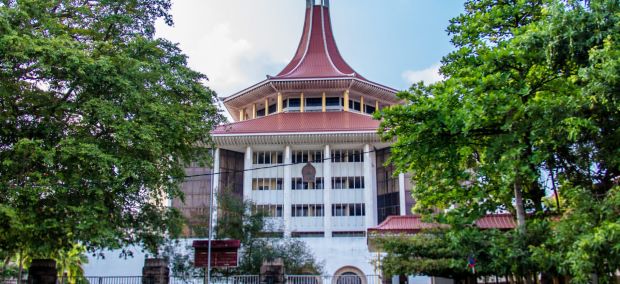COLOMBO – Sri Lanka’s Supreme Court has determined that several clauses in a recently drafted anti-corruption bill are inconsistent with the Constitution.
Speaker of Parliament Mahinda Yapa Abeywardena announcing the court determination told Parliament on Tuesday (6) that more than 25 clauses of the Anti-Corruption Bill gazetted on April 3 are inconsistent with the Constitution. The clause are: 1, 2(1)(f), 2(2), 3(2), 4(1)(a), 4(1)(b), 4(3), 17(1), 21, 31(2), 163(2)(h), 40, 48(3), 49(1)(f), 51(a), 53(1), 62(1), 65, 67(5), 71(6), 80, 93, 99, 101, 112, 149 and 162.
The bill was challenged in terms of Article 121(1) of the Constitution.
However, the inconsistencies flagged by the court will seize if the amendments as set out in the verdict are made to the bill, the speaker said citing the determination.
Amendments to clauses 83(3), 136, 141, 142 and 156 of the bill as set out in the determination will be made to address several concerns raised by the petitioners, the court was informed.
Notably, Section 119 of the bill which has proved controversial was not flagged by the Supreme Court as being inconsistent with the Constitution.
Sri Lanka gazetted the new anti-corruption in early April bill after the International Monetary Fund (IMF) approved a 2.9 billion US dollar loan which required the crisis-hit nation to address corruption vulnerabilities.
Among the objectives of the proposed act are to clauses prevent and eradicate bribery and corruption in order to meet the just requirements of the general welfare of a democratic society, enhance transparency in governance, strengthen integrity of governance and increase accountability, enhance public confidence in government and strengthen public participation to eradicate corruption.
The act also envisions establishing an independent commission to exercise and perform the stipulated powers and functions and to carry out the responsibilities imposed. The said commission will be mandated to conduct preliminary inquiries and investigations into, and to prosecute against, bribery, corruption, offences relating to declaration of assets and liabilities and associated offences.
The draft bill, if enacted, will enable the authorities to conduct and coordinate educational activities on the prevention of bribery and corruption, introduce an effective system for the declaration of assets and liabilities in order to prevent illicit enrichment by public officials, promote inter-agency cooperation and international collaboration in preventing bribery and corruption, and give effect to obligations under the United Nations Convention against corruption and any other International Convention relating to the prevention of corruption to which Sri Lanka is a party and recognize international standards and best practices in order to establish a culture of integrity in Sri Lanka.
In the lead up to its board approval of the loan, the IMF had urged Sri Lanka to reduce corruption vulnerabilities through improved fiscal transparency and public financial management, introducing a stronger anti-corruption legal framework, and conducting an in-depth governance diagnostic, supported by IMF technical assistance.
President Ranil Wickremesinghe said on April 2 that Sri Lanka will enact key points of its agreement with the IMF into law upon parliamentary approval, one of which would be new anti-corruption legislation which he said would likely be enacted in May.
-economynext.com



Comments are closed, but trackbacks and pingbacks are open.